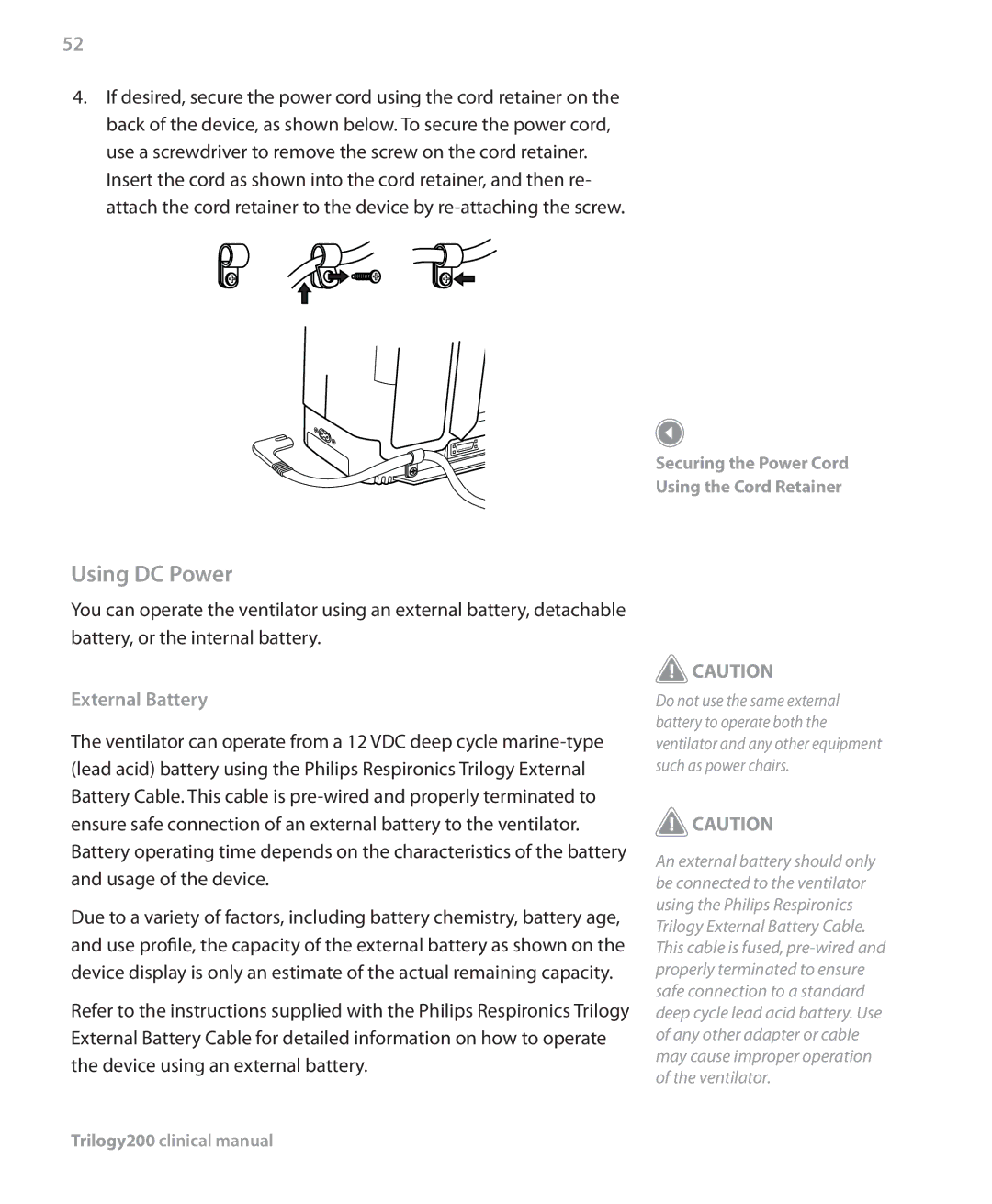
52
4.If desired, secure the power cord using the cord retainer on the back of the device, as shown below. To secure the power cord, use a screwdriver to remove the screw on the cord retainer.
Insert the cord as shown into the cord retainer, and then re- attach the cord retainer to the device by
Securing the Power Cord
Using the Cord Retainer
Using DC Power
You can operate the ventilator using an external battery, detachable battery, or the internal battery.
External Battery
The ventilator can operate from a 12 VDC deep cycle
Due to a variety of factors, including battery chemistry, battery age, and use profile, the capacity of the external battery as shown on the device display is only an estimate of the actual remaining capacity.
Refer to the instructions supplied with the Philips Respironics Trilogy External Battery Cable for detailed information on how to operate the device using an external battery.
![]() CAUTION
CAUTION
Do not use the same external battery to operate both the ventilator and any other equipment such as power chairs.
![]() CAUTION
CAUTION
An external battery should only be connected to the ventilator using the Philips Respironics Trilogy External Battery Cable. This cable is fused,
